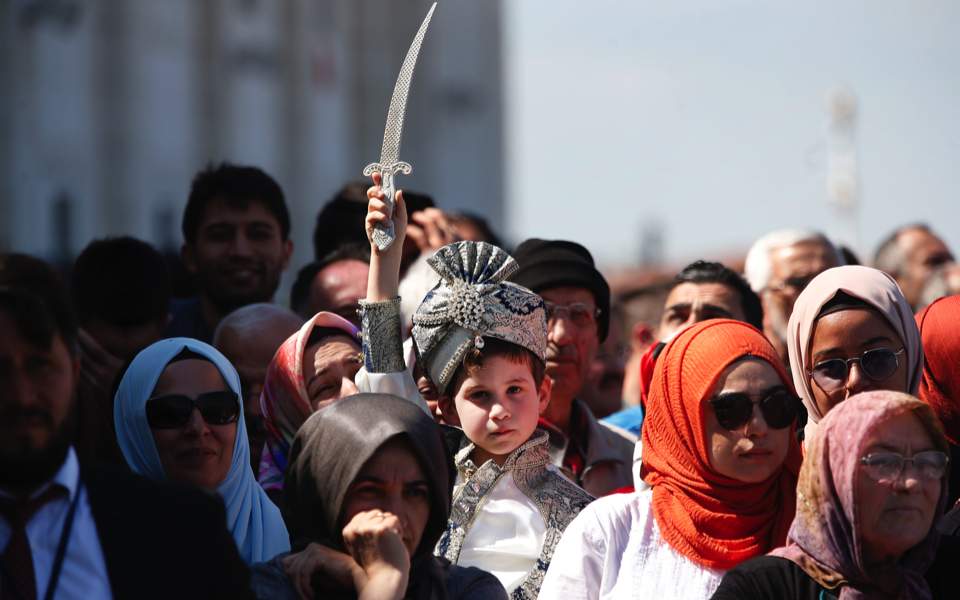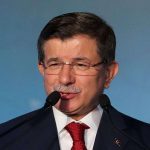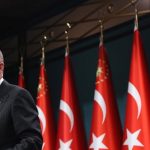ISTANBUL – “Our country is finally blessed with a period of four-and-a-half years without electoral disputes,” Turkish President Recep Tayyip Erdogan trumpeted some two weeks ago, addressing a crowd of public servants in Ankara. “It is now time to leave all tensions behind, embrace our opponents and focus on the challenges for the economy, security and stability of our country,” he added, before the assembled crowd broke out in ceremonial applause.
Two days later and just a few kilometres away from where the Turkish president’s podium had been standing, the leader of the country’s biggest opposition party, Kemal Kilicdaroglu, came under a barrage of vicious punches from a nationalist mob, during the funeral of a soldier who fell in a battle against Kurdish paramilitary forces.
For weeks now, Turkey has been oscillating between two parallel realities: a disputed electoral period which gifted the country’s biggest urban centers to the opposition – though they remain decked out with posters congratulating the government’s candidates – and a lengthy period of presumed political stability, during which the governing Justice and Development Party (AKP) promises to complete its vision of justice and development.
Against this backdrop of contrasts, a group of Greek journalists was invited to the neighboring country by the recently revamped Communications Directorate of the Turkish Presidency. It was a largely diplomatic, reconciliatory trip, aimed to promote mutual understanding through debate and interaction. At the same time, with scheduled visits to pro-government media – including state-run TRT World and Daily Sabah, owned by one of the president’s closest allies – as well as the Presidential Communications Directorate, the Ministry of Foreign Affairs and Turkey’s largest think-tank, SETA, the visit offered a hint of the Turkish government’s narrative and views on the country and its place in the world.
Turkey’s perception of its relations with the West – a hot-button issue amid tensions with the United States over the purchase of Russian S-400s – was aptly summarized by the selection of books we were given by SETA’s researchers, after a lively debate. One was on the benefits of executive governance in Turkey’s new presidential system, another on the Turkish strategy for reconstruction in Syria and a third on the rise of the Turkish defense industry: all signs of a country tackling the international arena with ambition and extroversion. In contrast, the publications regarding the West carried significantly more skepticism, with titles such as “Violent radicalization and extremism in Europe” and the annual “Islamophobia report.” Turkey’s disappointment with Europe’s stance in accession negotiations was evident – despite the fact that a TRT World journalist asserted that Turkey has little to gain from joining the Union, unlike Europe itself.
When it came to Turkey’s relationship with Greece, the picture was more amicably painted. The representatives of the president’s Communications Directorate spoke warmly of the recent visit by Prime Minister Alexis Tsipras, expressing optimism about booming trade relations and security compromises between the two countries. The tone shifted when the issue of the eight officers who fled to Greece on the night of the failed coup of 2016 came up. “Greece is transforming itself into a magnet for Gulen’s dangerous terrorists,” was the message repeatedly conveyed by Turkish representatives, who also underlined their disappointment that Greece and the Wes for not supporting “Turkey’s fight against the perils of terrorism of exiled cleric Fethullah Gulen and the Kurdistan Workers’ Party.”
Terrorism surfaced again multiple times, as a line of defense, when Turkish officials and journalists were questioned about the country’s abysmal record in free expression – after all, according to the Committee to Protect Journalists, Turkey sits at the top of the list of countries with the most journalists behind prison bars, with a significant difference over China at second place. “If a New York Times journalist collaborated with the Islamic State, would he not be imprisoned?” was the candid response by one of the journalists of the Daily Sabah. Coincidentally, two days before our meeting at the paper’s headquarters, Turkish police invaded the house of renowned economist Mustafa Sonmez and detained him briefly for a series of tweets criticizing the country’s economy that were seen as offensive to the Turkish president.
When, 17 years ago, AKP was ushered into the top seat of Turkish politics, voters responded to its pledges for justice – for the country’s forgotten pious Muslims – and, most importantly, economic development. The mammoth new Istanbul airport, the magnificent Camlica Mosque and the redevelopment of Taksim Square are all megaprojects aimed at demonstrating the strength of the Turkish economy – yet they remain largely half-finished. Meanwhile, this past week, the Turkish lira hit a six-month low.
The Turkish president indeed faces a period of four-and-a-half years without electoral strife. What remains to be seen is whether he will continue to fight every voice of criticism with accusations of insults and terrorism, or whether he will chose a path of reconciliation, appeasement and collaborative handling of an economy with persisting challenges.
By Niko Efestathiou
Source:ekathimerini



